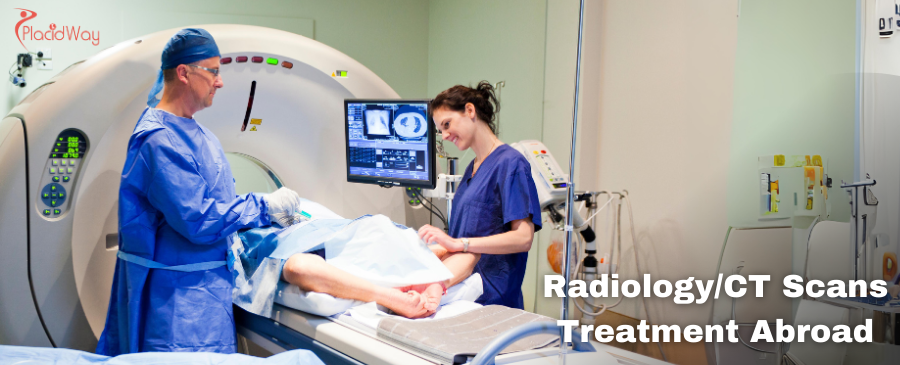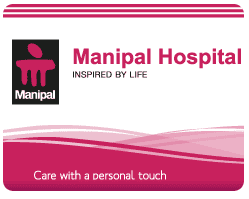
Explore Affordable, High-Quality CT Scans Overseas
In today's fast-paced world, timely and accurate medical diagnoses are paramount. When your doctor recommends a Computed Tomography (CT) scan, it's often a critical step in understanding your health condition. However, the cost and wait times for these advanced diagnostic procedures can be a significant barrier in many countries. This is where medical tourism for CT scans comes into play, offering a compelling solution for patients seeking both affordability and uncompromised quality.
A CT scan, often referred to simply as a "CAT scan," is a powerful medical imaging technique that utilizes specialized X-ray equipment. Unlike traditional X-rays that provide two-dimensional images, a CT scan takes multiple images from various angles and uses computer processing to create detailed cross-sectional slices, or "tomograms," of bones, blood vessels, and soft tissues inside your body. These incredibly detailed views allow doctors to detect and diagnose a wide range of conditions, from fractures and tumors to internal bleeding and infections, far more effectively.
For many, the journey to a clearer diagnosis begins with understanding all their options. Medical tourism provides an avenue to explore world-class medical facilities and highly experienced radiologists in destinations known for their excellent healthcare infrastructure and competitive pricing. Whether you're facing high out-of-pocket costs, prolonged waiting lists, or simply seeking a more comprehensive care experience, considering an overseas CT scan could be your ideal path forward.
What is a CT Scan and How Does It Work?
Imagine slicing a loaf of bread to see what's inside – a CT scan works on a similar principle, but for your body. The CT scanner is a large, donut-shaped machine that houses an X-ray tube and detectors. As you lie on a motorized table that slides through the opening, the X-ray tube rotates around you, taking hundreds of images from different angles. These individual X-ray images are then sent to a powerful computer that reconstructs them into detailed, cross-sectional pictures.
These "slices" allow radiologists to see internal organs, bones, soft tissues, and blood vessels in incredible detail, layer by layer. This level of precision is often essential for diagnosing complex conditions that might not be visible on conventional X-rays. The process is entirely painless and non-invasive, with the scan itself typically taking only a few minutes, though the entire appointment might be longer due to preparation.
Why Are CT Scans So Important for Accurate Diagnosis?
The diagnostic power of a CT scan lies in its ability to reveal intricate details within the body. For example, a doctor suspecting internal bleeding after an accident might order a CT scan of the abdomen to quickly identify the source. Similarly, a CT scan can pinpoint the exact location and size of a tumor, helping oncologists plan treatment more effectively. It's like having a high-resolution map of your body's interior, guiding healthcare providers to the precise areas needing attention.
From evaluating bone fractures and spinal issues to detecting early signs of cancer, cardiovascular disease, or infections, CT scans play a critical role across nearly all medical specialties. Their speed and accuracy make them invaluable in emergency situations and for ongoing monitoring of chronic conditions, ensuring patients receive the right treatment at the right time.
What Are the Different Types of CT Scans Available?
CT scans are highly versatile and can be tailored to image specific parts of the body or to highlight particular structures. Here are some of the most common types:
- CT Head: Used to examine the brain, skull, and sinuses. It can detect conditions like stroke, hemorrhage, tumors, hydrocephalus, and sinusitis.
- CT Chest: Focuses on the lungs, heart, esophagus, and major blood vessels within the chest cavity. It's crucial for diagnosing pneumonia, lung cancer, pulmonary embolism, and other respiratory conditions.
- CT Abdomen and Pelvis: Provides detailed images of organs such as the liver, kidneys, pancreas, spleen, intestines, and reproductive organs. It's used for diagnosing appendicitis, kidney stones, tumors, infections, and inflammatory bowel disease.
- CT Angiography (CTA): Involves injecting a contrast dye into the bloodstream to highlight blood vessels. This allows doctors to visualize arteries and veins, detecting blockages, aneurysms, or other vascular abnormalities.
- CT Urogram: Specifically images the urinary tract, including the kidneys, bladder, and ureters, often used to detect kidney stones, tumors, or blockages.
- CT Colonography (Virtual Colonoscopy): A less invasive alternative to traditional colonoscopy, this scan uses CT to create 3D images of the colon to screen for polyps and cancer.
- Cardiac CT: Focuses on the heart and coronary arteries, often used to assess coronary artery disease or cardiac function.
- CT Musculoskeletal: Images bones, joints, and soft tissues for evaluating fractures, complex bone injuries, tumors, or infections.
The choice of CT scan type depends entirely on the symptoms you're experiencing and what your doctor needs to investigate. Often, a contrast agent (a special dye) may be administered intravenously or orally to enhance the visibility of certain structures, providing even clearer diagnostic images.
When Would a Doctor Recommend a CT Scan?
A doctor typically recommends a CT scan when symptoms suggest an internal issue that requires more detailed imaging than a standard X-ray or ultrasound can provide. Common scenarios include:
- Unexplained or Severe Pain: Especially in the abdomen, back, or chest, to identify potential causes like kidney stones, appendicitis, or spinal issues.
- After Trauma or Injury: To quickly assess for internal bleeding, organ damage, or complex bone fractures in the head, chest, or abdomen.
- Detecting and Staging Cancer: CT scans are invaluable for identifying tumors, determining their size and spread (staging), and monitoring treatment effectiveness.
- Diagnosing Infections or Inflammatory Diseases: Such as abscesses, diverticulitis, or inflammatory bowel conditions.
- Evaluating Blood Vessel Conditions: Using CT angiography to look for aneurysms, blockages, or other vascular problems.
- Guiding Procedures: CT can be used to accurately guide biopsies, drain abscesses, or plan radiation therapy.
If you're experiencing persistent symptoms or have a medical history that warrants closer inspection of your internal organs, a CT scan could be a crucial diagnostic tool. Your referring physician will determine the most appropriate type of scan based on your specific condition.
Who is Eligible for a CT Scan?
Generally, most individuals are eligible for a CT scan if their doctor deems it medically necessary. However, certain factors might require special precautions or alternative imaging methods:
- Pregnancy: While the radiation dose from a single CT scan is relatively low, it's generally avoided during pregnancy unless absolutely critical, as there's a theoretical risk to the fetus. Your doctor will weigh the benefits against the risks.
- Kidney Disease: If a contrast agent is needed, patients with pre-existing kidney problems might be at risk of further kidney damage. Blood tests (creatinine levels) are often performed beforehand to assess kidney function.
- Allergies to Contrast Dye: Some people are allergic to the iodine-based contrast material. If you have a known allergy, inform your doctor and the imaging center. Pre-medication might be given, or an alternative imaging study might be chosen.
- Thyroid Conditions: Patients with certain thyroid conditions might need to avoid iodine contrast or adjust medication.
- Diabetes: If you're taking metformin for diabetes, you might be advised to stop it for a short period before and after a contrast CT scan to protect your kidneys.
- Asthma or Other Allergies: A history of asthma or severe allergies can increase the risk of an allergic reaction to contrast dye.
It's crucial to disclose your full medical history, medications, and any allergies to your doctor and the imaging staff to ensure your safety and the accuracy of the scan. They will assess your eligibility and ensure the procedure is performed safely.
How Should I Prepare for a CT Scan?
Proper preparation ensures the best possible images. The specific instructions will depend on the type of CT scan you're having. Here are general guidelines:
- Fasting: For CT scans involving the abdomen or pelvis, or those requiring contrast material, you will typically be asked to fast (no food or drink) for 2-4 hours before the scan.
- Medications: You can usually take your regular medications unless instructed otherwise. If you have diabetes and take metformin, you might need specific instructions regarding its use around contrast scans.
- Clothing and Jewelry: Wear comfortable, loose-fitting clothing without metal zippers or embellishments. You'll need to remove all metal objects, including jewelry, eyeglasses, dentures, and hairpins, as metal can interfere with the X-ray images.
- Contrast Agent:
- Oral Contrast: For abdominal or pelvic scans, you might be asked to drink a contrast solution a couple of hours before the scan. This helps highlight your digestive tract.
- Intravenous (IV) Contrast: For scans of blood vessels or organs like the brain, chest, or specific abdominal structures, a contrast dye may be injected into a vein in your arm. You might feel a warm flush or a metallic taste in your mouth, which is normal.
- Inform the Staff: Always inform the imaging technologist if you are pregnant, might be pregnant, have allergies (especially to iodine or contrast dye), kidney problems, diabetes, or any other significant medical conditions.
Following these instructions carefully is key to a successful and accurate CT scan. The imaging facility will provide you with detailed pre-scan instructions specific to your appointment.
What Can I Expect During and After a CT Scan?
The CT scan procedure itself is straightforward and relatively quick:
- During the Scan: You will lie on a motorized table, usually on your back, which will then slide into the large, donut-shaped opening of the CT scanner. You'll be asked to remain very still throughout the procedure. The technologist will be in an adjacent control room but can communicate with you via an intercom. You might hear whirring or clicking noises as the scanner rotates around you. For certain scans, you may be asked to hold your breath for short periods to prevent image blurring. The actual scanning time is usually only a few minutes, though the overall visit might last 15-30 minutes.
- After the Scan: Once the scan is complete, the technologist will help you off the table. If you received an IV contrast, you might be asked to wait a short period to ensure you have no immediate reactions. You can typically resume your normal activities, including eating and drinking, immediately after the scan. It's often recommended to drink plenty of fluids to help flush the contrast material from your body.
A radiologist, a doctor specializing in interpreting medical images, will analyze your CT scan images and send a detailed report to your referring physician. Your doctor will then discuss the findings with you and plan any subsequent steps.
Why Consider Getting a CT Scan Through Medical Tourism?
For many patients, especially those in countries with high healthcare costs or long waiting lists, medical tourism presents an attractive alternative for essential diagnostic imaging like CT scans. The primary drivers are often:
- Cost Savings: The most significant factor. A CT scan can cost thousands of dollars in some Western countries, while the same high-quality scan might be available for a fraction of the price in popular medical tourism destinations.
- Reduced Wait Times: In many public healthcare systems, non-emergency diagnostic imaging can involve weeks or even months of waiting. Medical tourism allows for much quicker appointments, accelerating diagnosis and treatment.
- Access to Advanced Technology: Many international clinics invest heavily in the latest CT scanner technology, offering cutting-edge imaging capabilities that might not be readily available in all local facilities.
- High-Quality Care: Top medical tourism destinations boast internationally accredited hospitals and highly skilled, often Western-trained, radiologists and technologists who adhere to stringent medical standards.
- Combining Treatment with Travel: For some, the opportunity to combine their medical procedure with a recovery period in a new, relaxing environment is an added benefit.
Choosing medical tourism for your CT scan means you don't have to compromise on quality or peace of mind. It's about finding an accessible, efficient, and affordable path to a clear diagnosis.
How Much Does a CT Scan Cost Worldwide?
The price of a CT scan can fluctuate wildly depending on the country, the facility, the specific type of scan, and whether a contrast agent is used. Here's a comparative overview of approximate costs for a standard CT scan (e.g., CT Abdomen/Pelvis) in various regions:
| Country | Approximate Cost (USD) | Notes |
|---|---|---|
| United States | $500 - $5,000+ | Highly variable, often depends on insurance, facility, and specific scan. |
| United Kingdom (Private) | $300 - $1,000 | Private clinics offer quicker access; NHS wait times can be long. |
| Canada (Private) | $300 - $800 | Limited private options; public system has significant wait times. |
| Mexico | $150 - $400 | Popular for US patients seeking close, affordable care. |
| Turkey | $200 - $500 | Modern facilities, skilled professionals, strong medical tourism hub. |
| India | $100 - $300 | Very competitive pricing, high-volume healthcare market. |
| Thailand | $150 - $450 | Renowned for medical tourism, excellent service standards. |
As you can see, the savings can be substantial, making medical tourism an extremely appealing option for those without adequate insurance coverage or facing high deductibles.
Which Countries Offer Affordable, High-Quality CT Scans?
Several countries have established themselves as leaders in medical tourism, offering a winning combination of affordability, advanced technology, and high standards of care for diagnostic imaging:
- Mexico: A top choice for North Americans due to its proximity and significantly lower costs. Cities like Tijuana, Cancun, and Monterrey boast state-of-the-art diagnostic centers.
- Turkey: Known for its modern hospitals, English-speaking staff, and competitive pricing, particularly in cities like Istanbul and Antalya. It's a popular choice for patients from Europe and the Middle East.
- India: Offers some of the lowest prices globally without compromising on quality, with highly skilled medical professionals and internationally accredited hospitals in cities like Delhi, Mumbai, and Bangalore.
- Thailand: A long-standing medical tourism hub, Thailand provides excellent patient care, luxurious facilities, and experienced medical teams, especially in Bangkok and Phuket.
- Costa Rica: Emerging as a strong contender in Central America, offering high-quality medical services at reasonable prices in a beautiful, natural setting.
These destinations not only provide cost-effective CT scans but also often integrate advanced diagnostic technology and follow international best practices, ensuring reliable and accurate results for international patients.
What Are the Benefits of Choosing Medical Tourism for Imaging?
The benefits of opting for medical tourism for your CT scan extend far beyond just the price tag:
- Expedited Diagnosis: Avoid lengthy queues and receive prompt appointments, leading to quicker diagnoses and the initiation of necessary treatment. This is crucial for conditions where early detection significantly impacts outcomes.
- Access to Cutting-Edge Technology: Many medical tourism facilities boast the latest generation of CT scanners, offering faster scans, lower radiation doses, and higher-resolution images compared to older equipment.
- Expert Radiologists: You'll have access to highly qualified radiologists, often with international training and extensive experience, who specialize in interpreting complex imaging studies.
- Comprehensive Care Packages: Many clinics cater to international patients with services that include translation, accommodation assistance, and seamless coordination of appointments, making the process stress-free.
- Privacy and Discretion: For some, the opportunity to receive medical care away from their home country offers a greater sense of privacy and anonymity.
- Travel Opportunities: The chance to recover or enjoy a different culture can turn a medical necessity into a unique travel experience, reducing the stress often associated with medical procedures.
Ultimately, medical tourism for imaging empowers you to take control of your healthcare journey, ensuring you receive timely, high-quality diagnostic services on your own terms.
How Can PlacidWay Help Arrange My Overseas CT Scan?
Navigating the world of medical tourism can seem daunting, but PlacidWay is here to make it simple and stress-free. As a leading medical tourism platform, we specialize in connecting patients with reputable, accredited hospitals and clinics worldwide for a wide range of procedures, including CT scans.
Here’s how PlacidWay can assist you:
- Clinic Vetting and Selection: We partner with only the best medical facilities that meet rigorous international standards for quality and patient safety. We help you choose the ideal clinic based on your specific needs, budget, and desired location.
- Transparent Cost Quotes: We provide clear, comprehensive cost estimates upfront, ensuring there are no hidden fees. You'll know exactly what to expect financially.
- Logistical Support: From helping with travel arrangements and accommodation to scheduling appointments and arranging local transportation, PlacidWay handles the details so you can focus on your health.
- Personalized Guidance: Our experienced patient care coordinators will be with you every step of the way, answering your questions, addressing your concerns, and ensuring a smooth, comfortable experience from inquiry to post-scan care.
- Access to Information: We provide detailed information about procedures, clinics, and destinations, empowering you to make informed decisions about your healthcare.
With PlacidWay, you gain a trusted partner committed to helping you access affordable, high-quality CT scans abroad with confidence and ease. Your journey to a definitive diagnosis is just a click away.
Take the Next Step with PlacidWay
Ready to get the clarity you need with an affordable, high-quality CT scan? Your journey to a definitive diagnosis is just a click away. Explore top-rated international clinics, compare prices, and get a free, personalized quote for your CT scan with PlacidWay. Let us help you plan a seamless and efficient medical travel experience. Start your path to better health today!






Share this listing